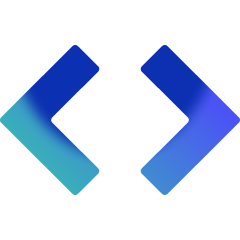LangGraph AgentDevelopment System
Build production-ready AI agents through natural conversation with Claude Code. No boilerplate, no complex setup—just describe what you need.
Everything You Need
Professional-grade tools and infrastructure, ready to use.
Agent Architecture
Production-ready LangGraph patterns with built-in state management, error handling, and retry logic.
40+ Built-in Tools
Google Workspace (Gmail, Calendar, Sheets, Drive), Slack (12 tools), HTTP APIs, data processing, file operations, and workflow automation.
MCP Integrations (Beta)
Experimental integrations via Model Context Protocol for extended capabilities.
Memory Systems
Persistent conversations, RAG support, and vector storage for context-aware agents.
Production Deployment
Docker containers, Kubernetes manifests, monitoring, and security configurations included.
Testing Framework
Unit tests, integration tests, and debugging tools for reliable agent development.
A Better Way to Build Agents
Skip the complexity. Focus on what your agent should do, not how to build it.
Traditional No-Code
Manual Coding
Braid + Claude Code
Minutes
Limited scope
Hours/Days
Boilerplate heavy
Minutes
Any complexity
Limited to presets
Full control, high effort
Full control, AI-assisted
Basic deployment
Complex setup
Enterprise-grade
Black box
Manual instrumentation
Built-in observability
Preset connectors
Build everything
40+ tools & integrations
How It Works
You don't use CLIs or write boilerplate. You work with Claude Code to build agents through natural conversation:
Step 1: Prepare Claude Code
"Please prepare to create a LangGraph agent by reading your development guide."Reads its instructional guide and understands the full system architecture, available tools, and best practices.
Step 2: Define Your Agent Requirements
## Core Tasks and Sequences of Agent
**Your Requirements**:
I need an agent that monitors customer support tickets, analyzes sentiment,
and posts daily summaries to Slack with trend data in Google Sheets.
## Tools & MCPs Required
**Your Required Tools & MCPs**:
[Claude Code will recommend optimal combinations]Analyzes your requirements and recommends the optimal combination of tools and MCPs for your specific use case.
Step 3: Create Your Agent
"Please read my agent requirements and create the agent."- Analyzes your requirements
- Selects optimal tools and MCPs
- Creates production-ready agent structure
- Sets up all configurations and dependencies
- Provides testing and deployment instructions
Step 4: Enhance with Pro Pack (Optional)
"Please add the Braid Pro Pack for enhanced testing and monitoring."- Advanced unit test suites
- Integration test frameworks
- Performance monitoring
- Error handling enhancements
- Development workflows
Step 5: Prepare for Deployment
"Please prepare this agent for production deployment."- Packages with optimized Docker containers
- Sets up production monitoring
- Creates deployment documentation
- Configures security hardening
- Generates Kubernetes manifests (if needed)
Comprehensive Tool Library
40+ tools and integrations with experimental MCP support.
Built-in Tools
- HTTP APIs
- File Ops
- Transform
- CSV/Data
- Scheduling
- Python
Built-in Integrations
MCP Integrations (Beta)
Experimental integrations via Model Context Protocol
Case Study
How ProAI built a sophisticated financial forecasting system with Braid
Custom Integrations
Custom Tools
ProAI Financial Forecasting Agent
Dynamic forecasting with accounting integrations
The Challenge
ProAI needed dynamic financial forecasting with accounting software integration (QuickBooks, Xero), market research inputs, and Python compatibility. Required iterative feedback loops and persistent memory.
Why Traditional Solutions Failed
- No-code platforms: Limited chat versatility and edge case handling
- Basic integrations: No sequencing enforcement or business structure adaptation
The Braid Solution
Intelligent agent that adapts to unique business structures, enforces proper sequencing, and maintains context.
- Intelligent Sequencing: Enforces proper data gathering before forecasting
- Contextual Adaptation: Handles varying business types and data structures
- Feedback Loops: Iterative refinement with three-statement models
Demo Agents
Agents created using Braid for testing.
Mural Collaboration Agent
An intuitive, conversational interface for visual collaboration on Mural.
Key Capabilities:
- Conversation-to-Visual: Creates murals from natural language discussions.
- Content Management: Adds stickies, titles, and visual elements.
- Collaboration Control: Manages team member access and permissions.
- Direct API Integration: Seamless connection to Mural platform.
- Research Enhancement: Uses Perplexity for context and insights.
- Real-time Updates: Syncs changes across all collaborators.
Autonomous AR Clerk
Automates the full AR lifecycle, from contract to cash, ensuring timely payments.
Key Capabilities:
- Google Drive Trigger: Starts workflow from new contracts.
- Automated Xero Invoicing: Creates and schedules invoices.
- Payment Reconciliation: Tracks payments and notifies team on Slack.
- Automated Collections: Sends email & SMS reminders.
- Human Escalation: Flags overdue accounts for team review.
Sales Intelligence Engine
Proactively finds and synthesizes sales opportunities to accelerate outreach.
Key Capabilities:
- Web Monitoring: Scans for sales trigger events.
- Data Fusion: Combines web data with internal Notion CRM.
- Slack Briefings: Delivers synthesized opportunity briefs.
- Human-in-the-Loop: Enables one-click actions for sales reps.
- Gmail Drafts: Auto-generates personalized outreach emails.
Frequently Asked Questions
Get answers to common questions about Braid's approach and capabilities.
Why use built-in integrations instead of MCP Servers?
MCP Servers offer more flexible tool usage out of the box, but their primary advantage is offering an extensive library of tools for dynamic tasks (E.g. Find a list of influencers and email them). In more sequential tasks, where the range of scenarios are more controlled, they offer fewer advantages (E.g. Process this refund for Order #01A01), and they result in increased latency and issues during debugging process since they need separate deployment.
What are the advantages of just using Claude Code directly without the Braid framework?
When creating agents in Claude code, significant compute is applied to redundant tasks (E.g. creating tools, integrations, ect.), which is better applied thinking through agent architecture and testing. Further, having a pre-defined set of workflow paths tested for systematic agent production allows layered guardrails and bug prevention.
Will Braid zero shot my agents into production?
No, but eventually it will be able to, and the primary goal is to assist with agent scaffolding with predefined tools documented for the LLM so you can focus on more refined testing and integration.




